Head To Head: Yak Chew Vs. Bully Stick
Get ready for the ultimate showdown! In one corner, we have the Himalayan dog chew, also known as the yak chew. In the other corner,
Who says you can’t share your food with your furry friend? Dogs are more than just pets – they’re members of our family, and we want to give them the best possible care, including a healthy and tasty diet. In this blog post, we’ve compiled a list of 50+ foods that you can safely share with your pup, grouped by categories such as fruits, veggies, proteins, and more. So, get ready to spoil your furry friend with some tasty treats that are both nutritious and delicious!
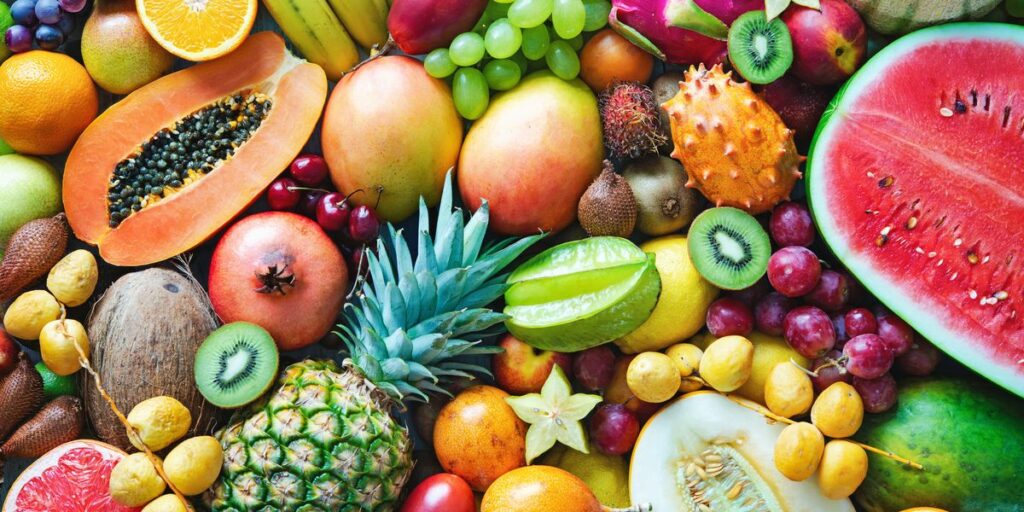

Does your dog have a sweet tooth? Here are some fruits that they’ll absolutely love:
Veggies can be a tasty and healthy snack for your pup. Here are some of our top picks:
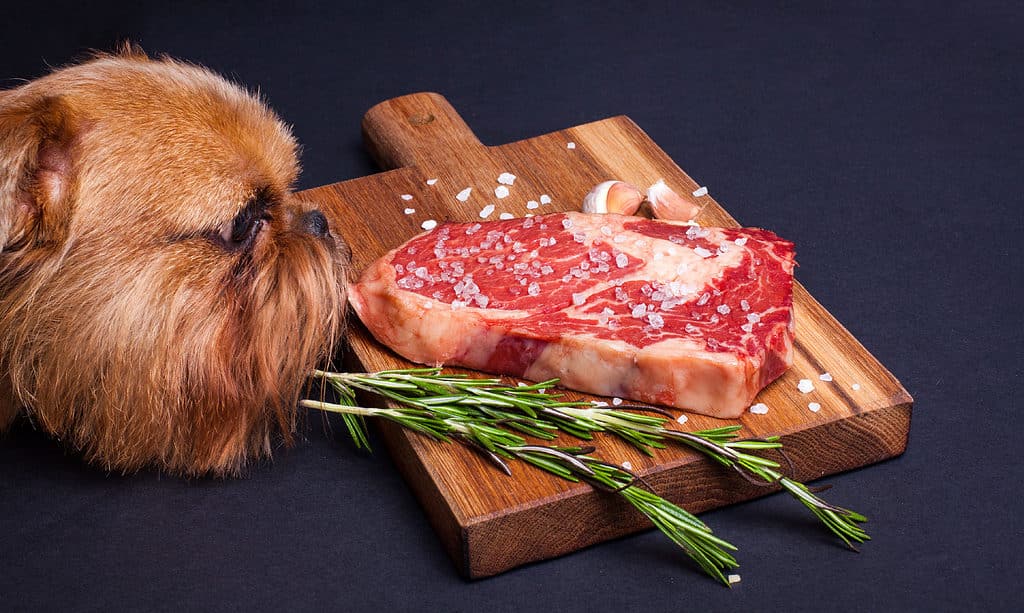

Looking for some tasty protein sources for your furry friend? Here are some options that they’re sure to love:
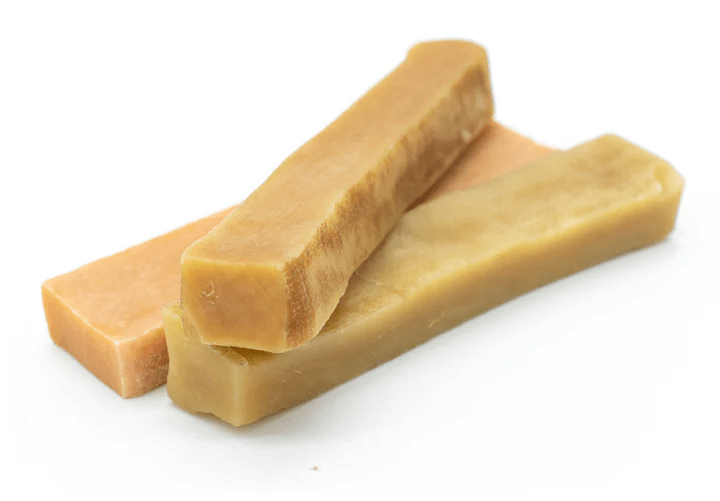

If your dog loves dairy products, here are some options that are safe and healthy for them to consume: Check out our yak chews! A cheese rich in nutrients specifically designed for dogs who love to chew.
Grains can be a great source of fiber and other nutrients for your furry friend. Here are some options that they’ll enjoy:
Here are some other tasty treats that your pup is sure to love:
While there are many foods that are safe and healthy for dogs to consume, there are also several foods that should be avoided as they can be toxic or harmful to their health. These include:
If you want to understand more about why dog’s can’t eat chocolate check this out
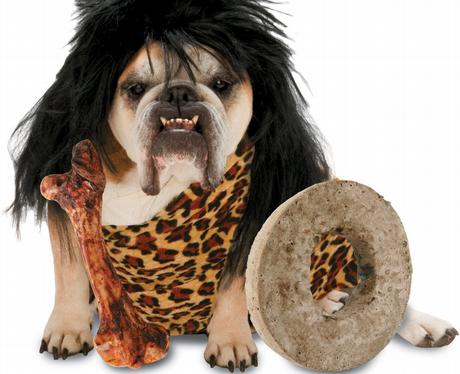

Before dogs became our loyal companions, they were wild animals that roamed free in the great outdoors. And what did they eat, you ask? Well, it was a smorgasbord of meat, fish, fruits, and vegetables! These natural-born hunters would chase down prey such as rabbits, deer, and birds, and also feast on fish that they caught in rivers and streams. And when they weren’t hunting, they would munch on various fruits and vegetables such as berries, roots, and even grass!
Fast forward to modern times, and our beloved dogs have come a long way from their wild roots. With the advent of commercial dog food, many of us have become disconnected from what our dogs truly need to thrive. However, it’s important to remember that despite their domestication, dogs still have many of the same nutritional needs as their wild ancestors.
So what can we learn from their wild diet? For one, we can see that dogs are natural omnivores, meaning they eat both meat and plant-based foods. We can also see that they need a varied diet that includes a range of different foods to meet their nutritional needs. By incorporating a variety of safe and healthy foods into your dog’s diet, you can help ensure that they are getting all the nutrients they need to live a happy and healthy life.
So go ahead and take a page out of your dog’s wild past and treat them to some tasty fruits and vegetables, as well as some high-quality sources of protein. Your furry friend will thank you for it!
Each food on this list has its own unique set of nutritional benefits for dogs. For example, apples are a great source of fiber, vitamins, and antioxidants, while chicken is a lean protein source that can help build and repair muscles. By incorporating a variety of these foods into your dog’s diet, you can provide them with a range of important nutrients that can help keep them healthy.
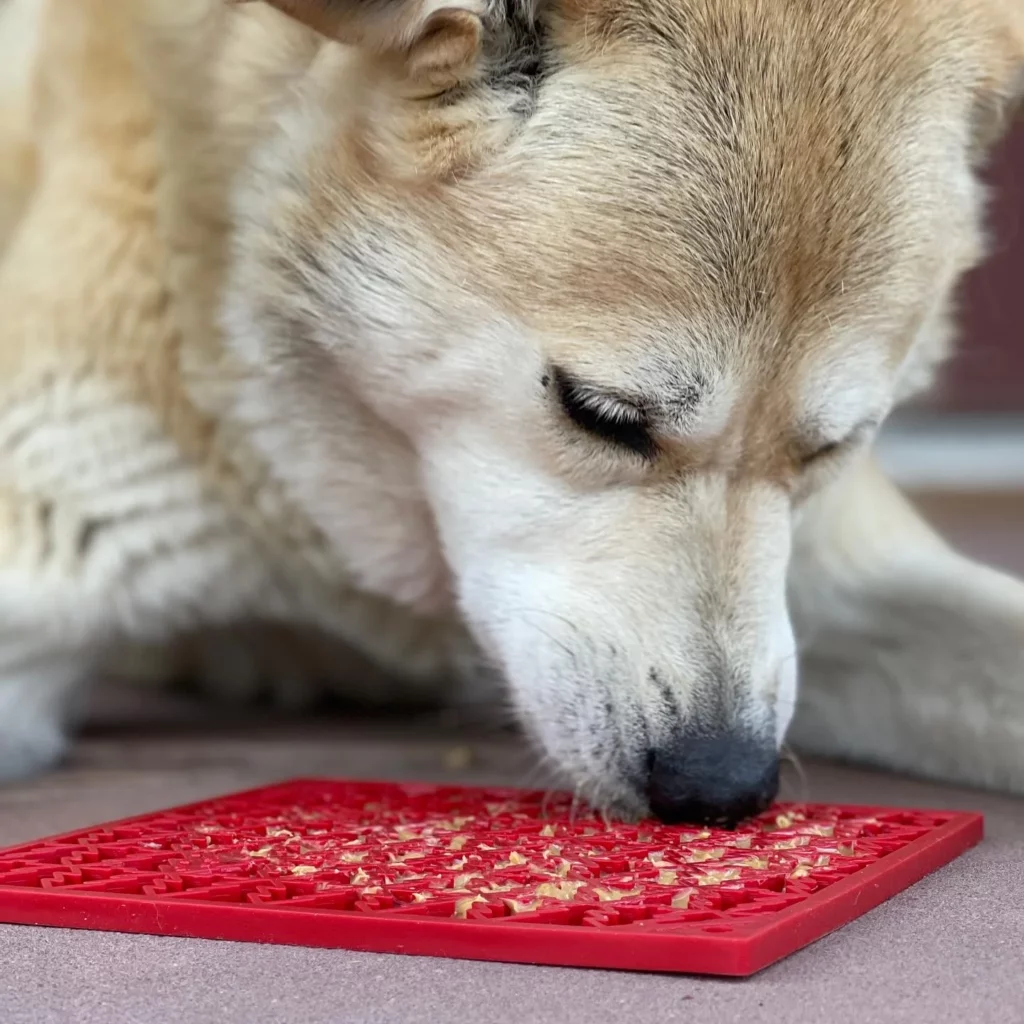
While sharing food with your dog can be beneficial, there are also some potential drawbacks to keep in mind. For example, giving your dog too many treats can lead to obesity, which can have serious health consequences. Additionally, if your dog becomes accustomed to eating human food, they may become picky about their regular dog food, which can make it difficult to ensure they’re getting all the nutrients they need.
Get ready for the ultimate showdown! In one corner, we have the Himalayan dog chew, also known as the yak chew. In the other corner,
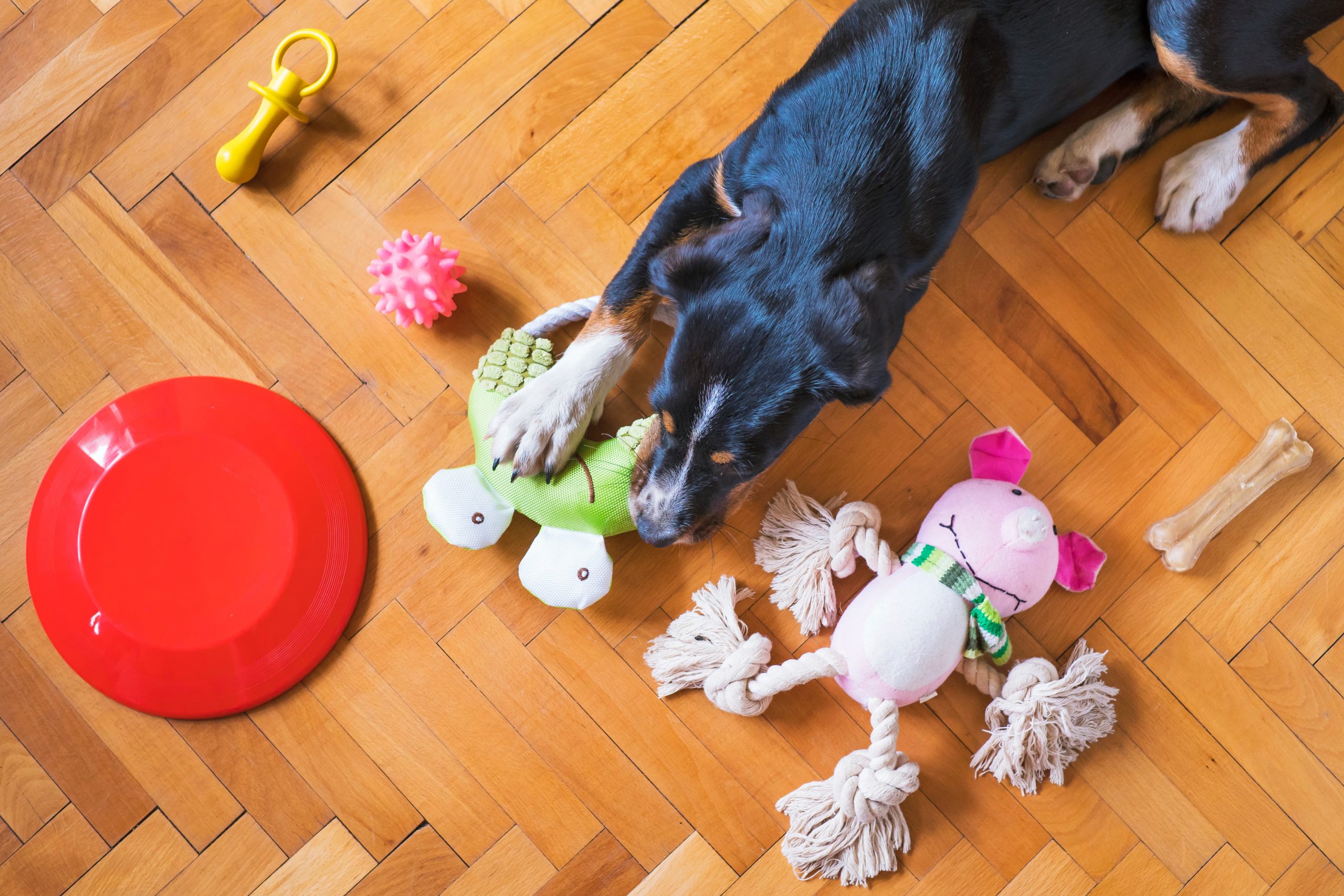

Are Dog Subscription Boxes With It In 2023? Who doesn’t love spoiling their furry friend with a fun monthly surprise? Dog subscription boxes have become

As pet owners, we’ll do just about anything to keep our furry friends happy and healthy. And if that means giving them a piece of


Who says you can’t share your food with your furry friend? Dogs are more than just pets – they’re members of our family, and we
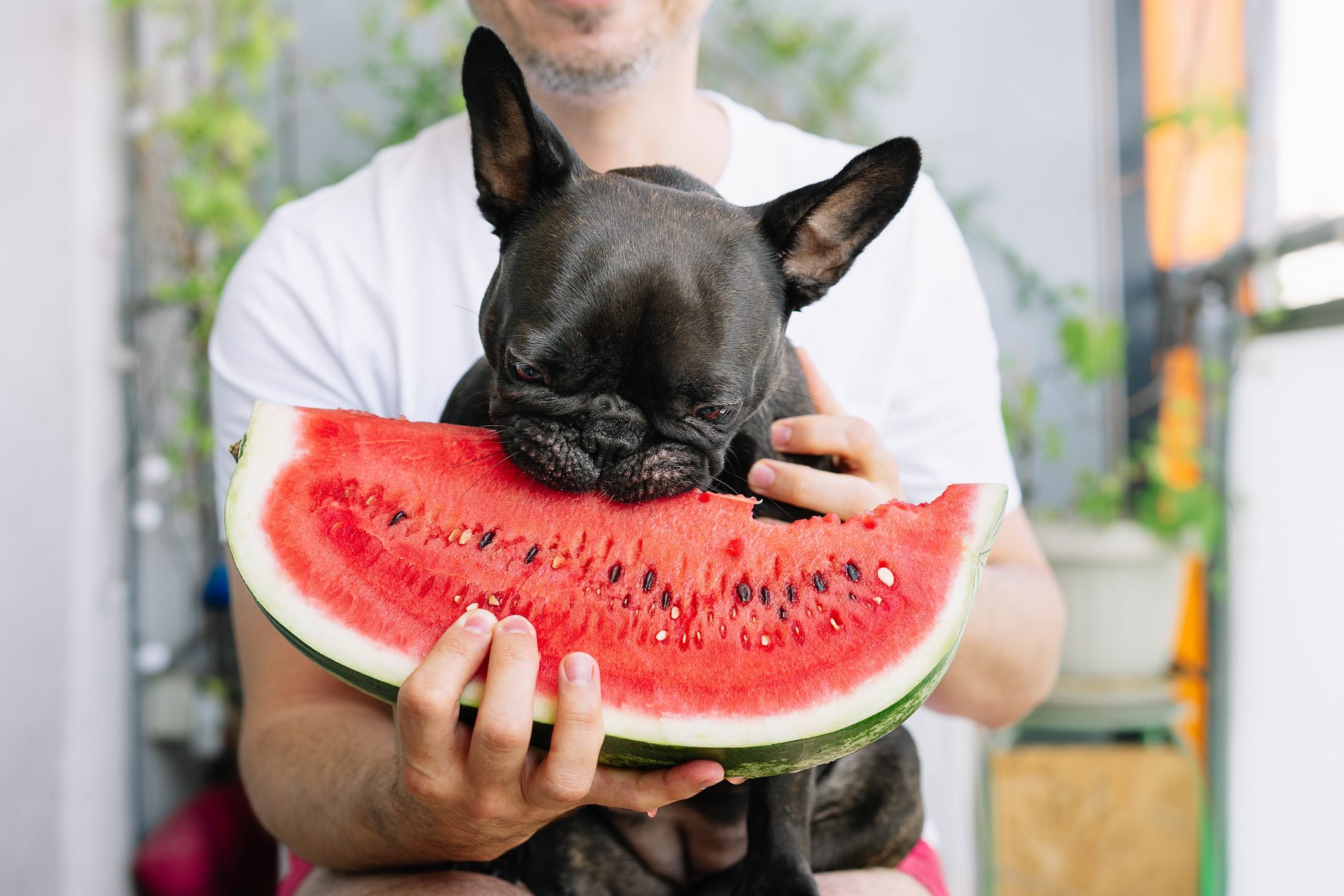

Hey there, fellow dog lovers! We all know that our furry friends are more than just pets – they’re our beloved family members. And let’s
Subscribe to our Newsletter, get special offers and hear about awesome dog stuff.
© 2022, WoofCrate™ All Rights Reserved
Terms & Privacy.

